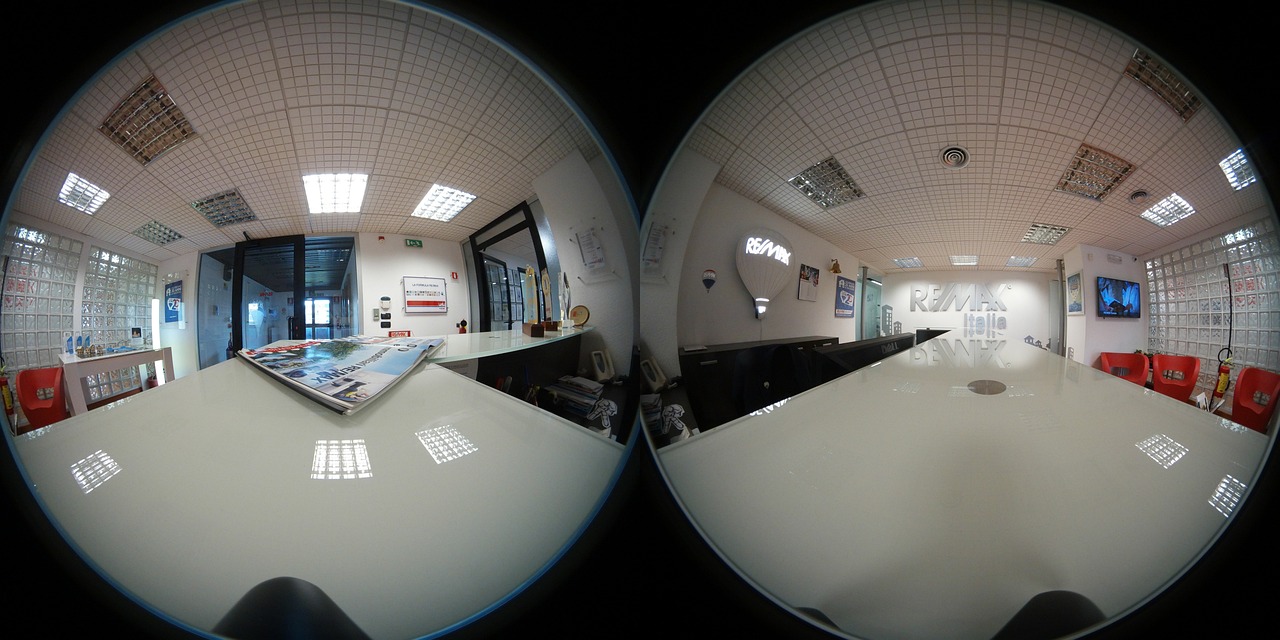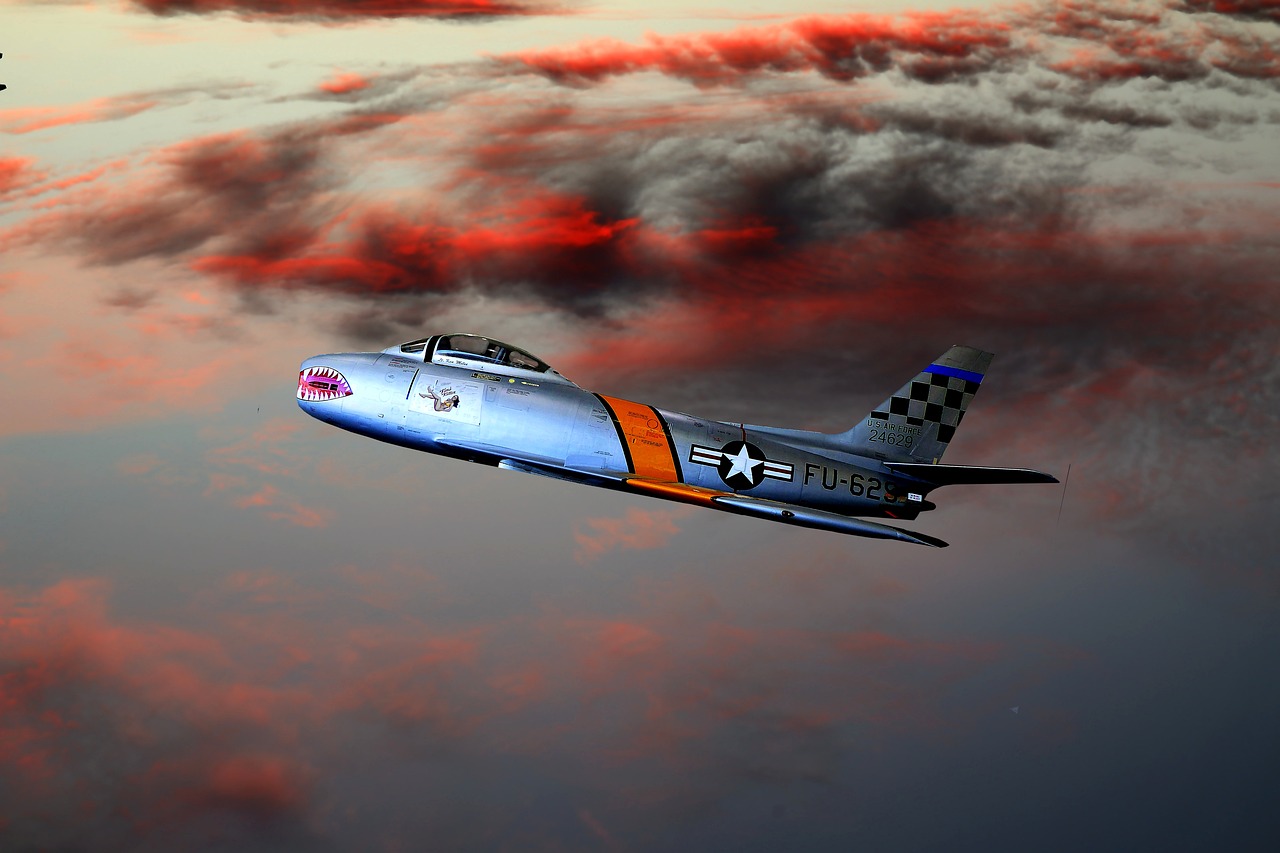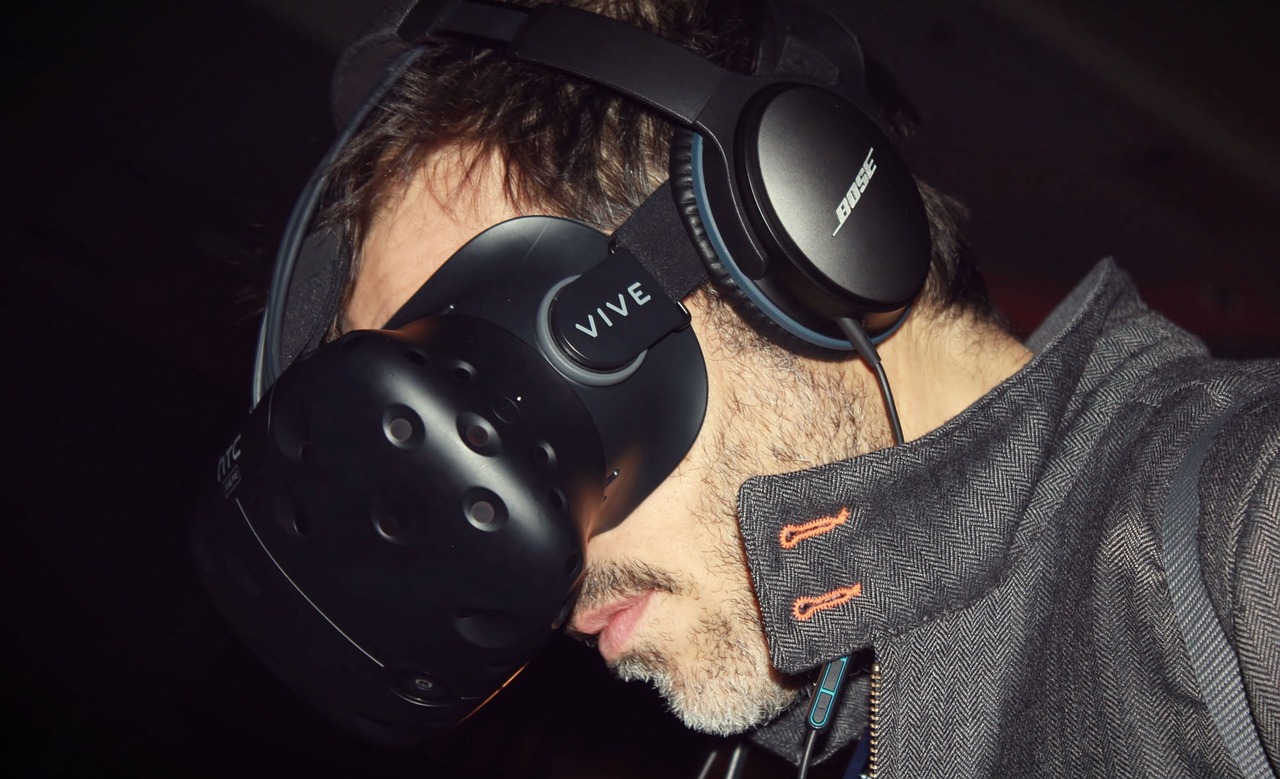The Use of VR for Practical Exercises in Military Law
In the ever-evolving landscape of military training, the integration of Virtual Reality (VR) technology is making waves, particularly in the realm of military law. Imagine stepping into a courtroom where the stakes are high, and every decision could have far-reaching consequences. This is not just a figment of the imagination; it's a reality that military legal professionals can now experience through VR. By immersing themselves in lifelike scenarios, they can enhance their practical skills and decision-making abilities in a controlled yet realistic environment. This article delves into the innovative application of VR technology in military law training, exploring how it enhances practical exercises and equips legal professionals with the tools they need to navigate the complexities of military justice.
The benefits of utilizing VR in military law training are profound and multifaceted. First and foremost, VR offers an immersive experience that significantly improves engagement and retention of knowledge. Instead of reading about legal principles or watching videos, legal personnel can actively participate in scenarios that replicate real-world challenges. This hands-on approach allows them to practice their skills in a safe, controlled environment, making them better prepared for actual legal challenges they may face in the field.
Furthermore, VR can simulate a variety of legal situations, from court-martials to administrative hearings, allowing military lawyers to hone their skills in environments that mirror actual courtroom settings. This level of realism is crucial, as it enhances their ability to respond effectively under pressure. The ability to practice in such environments not only builds confidence but also fosters a deeper understanding of the legal processes involved.
Several military organizations have already taken the plunge into VR training, reaping the benefits of this cutting-edge technology. For instance, the U.S. Army Judge Advocate General's Corps has implemented VR scenarios that allow their legal teams to engage in mock trials. These trials are designed to mimic real-life cases, providing a platform for lawyers to practice their advocacy skills, cross-examine witnesses, and make legal arguments in a realistic setting.
Another notable example is the NATO Allied Command Transformation, which has developed VR training modules focusing on international law and conflict resolution. These modules not only enhance the legal knowledge of military personnel but also improve their ability to collaborate with allies in joint operations. The effectiveness of these programs highlights the transformative potential of VR in military law training.
One of the most exciting aspects of VR technology is its ability to create realistic legal scenarios. Imagine a virtual courtroom where military lawyers can practice their skills, presenting cases and making arguments while being observed by instructors. This simulation of legal scenarios enables military lawyers to experience the dynamics of a courtroom, including the pressure of time constraints and the need to think on their feet.
Through role-playing exercises in VR, military personnel can assume various roles, such as defense attorneys, judges, or even witnesses. This not only fosters a deeper understanding of the legal processes involved but also enhances their advocacy skills. By stepping into different shoes, they gain valuable insights into the perspectives and challenges faced by others in the legal system. It’s like playing a game where the outcome depends on the decisions made in real-time, making the learning experience both engaging and impactful.
Incorporating immediate feedback mechanisms within VR training is another game-changer. Participants can receive real-time assessments of their performance, allowing them to identify areas for improvement. This targeted feedback reinforces learning outcomes and helps military lawyers refine their skills in military law practices. The combination of practice and feedback creates a powerful learning loop that accelerates their professional development.
Despite its numerous advantages, the adoption of VR in military law training does come with its challenges. High costs associated with VR technology can be a significant barrier for some military organizations. Additionally, there are technological limitations that can hinder the effectiveness of training. Not to mention, the need for specialized training to effectively utilize VR technology adds another layer of complexity. However, overcoming these challenges could lead to a revolutionary shift in how military law training is conducted.
Looking ahead, the future of VR in military law training appears promising. As technology continues to evolve, we can expect to see emerging trends and innovations that will further enhance training methodologies. One such trend is the integration of artificial intelligence (AI) with VR, which could create dynamic training environments that adapt to the learner's progress. This personalized approach would cater to individual learning needs, making training even more effective.
Furthermore, the potential of VR in military law may extend beyond military applications to civilian legal training. The lessons learned from military applications can significantly benefit broader legal education and practice, paving the way for a new era of legal training that is more interactive and engaging.
- What is VR technology? VR technology creates a simulated environment that allows users to interact with a computer-generated world, providing immersive experiences.
- How does VR enhance military law training? VR enhances military law training by providing realistic scenarios for practice, improving engagement, and allowing for immediate feedback.
- What are some challenges of implementing VR in military training? Challenges include high costs, technological limitations, and the need for specialized training.
- What is the future of VR in military law? The future includes the integration of AI for personalized training experiences and potential applications in civilian legal education.

Benefits of VR in Military Law Training
Virtual reality (VR) has emerged as a groundbreaking tool in the realm of military law training, offering a multitude of benefits that traditional methods simply cannot match. Imagine stepping into a world where you can practice legal scenarios without fear of real-world repercussions. This immersive experience not only enhances engagement but also significantly boosts retention of critical legal concepts. By simulating real-world situations, military legal personnel can hone their skills in a controlled environment, preparing them for the complexities they may face in actual legal challenges.
One of the most compelling advantages of VR is its ability to create realistic training scenarios. In a conventional classroom setting, legal professionals often struggle to grasp the nuances of courtroom dynamics. However, with VR, they can enter a virtual courtroom, complete with all the sensory details that make the experience feel authentic. This kind of training allows military lawyers to practice their responses to various situations, enhancing their decision-making skills under pressure. It's akin to a pilot training in a flight simulator—where the stakes are high, but the environment is safe for learning.
Moreover, VR facilitates collaborative learning. Military personnel can engage in joint exercises where they interact with peers in a virtual setting, allowing for the exchange of ideas and strategies. This collaboration can lead to a deeper understanding of different legal perspectives and improve teamwork in high-stakes scenarios. For instance, during a simulated court-martial, participants can take on various roles—prosecutors, defense attorneys, and judges—allowing them to appreciate the complexities of each position and how they contribute to the overall legal process.
Furthermore, the incorporation of immediate feedback mechanisms within VR training enhances the learning experience. Participants can receive real-time assessments of their performance, pinpointing areas that require improvement. This feedback loop is crucial for reinforcing learning outcomes and ensuring that military legal personnel are well-prepared for the challenges they will encounter in their careers. By analyzing their actions and decisions in a safe environment, they can fine-tune their skills before facing real-life situations.
In summary, the benefits of VR in military law training are multifaceted. From immersive experiences that replicate real-world scenarios to immediate feedback that fosters targeted improvements, VR technology is revolutionizing how legal professionals in the armed forces prepare for their critical roles. As we continue to explore the potential of this technology, it’s clear that the future of military legal training is not just promising—it’s transformative.

Case Studies of VR Implementation
The integration of Virtual Reality (VR) in military law training has not just been a theoretical concept; it has been actively implemented in various military organizations around the world. These case studies illustrate how VR technology is revolutionizing the way military legal personnel prepare for real-world challenges. One notable example comes from the United States Army, which has developed a VR training program that immerses legal professionals in simulated courtroom environments. This program allows them to experience the pressure of a trial while honing their advocacy skills.
In another instance, the British Armed Forces have adopted VR to create realistic scenarios that military lawyers might encounter during deployments. By replicating complex legal situations, such as rules of engagement and international law disputes, these simulations provide invaluable experience. Participants can engage in role-playing exercises where they assume different positions—such as defense attorneys or judges—allowing them to understand various perspectives within the legal process. This kind of immersive training fosters not only skill development but also empathy and a deeper understanding of the law.
Moreover, a recent collaboration between the Canadian Armed Forces and a tech company focused on developing a VR platform specifically for military legal training has yielded promising results. This platform includes a series of interactive scenarios that require participants to make quick legal decisions based on evolving situations. The immediate feedback mechanisms built into the program allow users to assess their performance in real-time, making the learning process both engaging and effective. Such innovations highlight the potential for VR to create a more dynamic and responsive training environment.
To better understand the impact of these implementations, let’s take a closer look at the outcomes observed in these case studies:
| Organization | VR Implementation | Outcomes |
|---|---|---|
| United States Army | Simulated courtroom environments | Enhanced advocacy skills and pressure management |
| British Armed Forces | Complex legal scenario simulations | Improved understanding of legal processes and empathy |
| Canadian Armed Forces | Interactive decision-making scenarios | Real-time feedback and dynamic learning experiences |
These case studies serve as a testament to the effectiveness of VR in military law training. By providing a safe space to practice and refine their skills, military legal professionals are better prepared to handle the complexities of real-life legal challenges. The lessons learned from these implementations not only enhance individual capabilities but also contribute to the overall effectiveness of military legal operations.
- What is Virtual Reality (VR) in military law training?
VR in military law training refers to the use of immersive technology to simulate real-world legal scenarios, allowing military legal personnel to practice their skills in a controlled environment. - How does VR improve legal training outcomes?
By providing realistic simulations, VR enhances engagement, retention, and decision-making skills, preparing military lawyers for high-pressure situations. - What are some challenges of implementing VR in military law training?
Challenges include high costs, technological limitations, and the need for specialized training to effectively utilize the technology. - Can VR training be beneficial for civilian legal education?
Absolutely! Lessons learned from military VR applications can be adapted to improve training methodologies in civilian legal education.

Simulation of Legal Scenarios
Imagine stepping into a courtroom where the stakes are high, and every decision you make could impact the lives of those involved. This is precisely what in virtual reality (VR) offers military lawyers. By immersing themselves in lifelike environments, legal professionals can practice their skills in a safe yet realistic setting. This innovative approach not only enhances their understanding of legal proceedings but also prepares them for the unpredictable nature of real-world situations.
One of the most significant advantages of VR simulations is the ability to recreate various courtroom dynamics. For instance, a military lawyer can experience a trial from multiple perspectives—whether as a defense attorney, prosecutor, or even a witness. This multifaceted approach allows them to grasp the intricacies of each role, leading to a more comprehensive understanding of the legal process. As they navigate through different scenarios, they learn to anticipate challenges and develop strategies to overcome them, ultimately enhancing their legal acumen.
Moreover, these simulations can be tailored to reflect specific cases or legal challenges that military personnel may encounter. For example, a VR scenario could involve a court-martial proceeding where the lawyer must defend a service member accused of misconduct. By engaging in such realistic experiences, military lawyers can refine their advocacy skills and adapt their approach based on the unique circumstances of each case.
The immersive nature of VR also fosters a sense of urgency and pressure that can be difficult to replicate in traditional training environments. Participants are often placed in high-stakes situations where they must make quick decisions, simulating the intense atmosphere of an actual courtroom. This aspect of training is crucial, as it prepares military lawyers to think on their feet and respond effectively when faced with unexpected challenges.
Furthermore, VR simulations can incorporate various feedback mechanisms, allowing participants to receive real-time evaluations of their performance. This immediate feedback loop is invaluable, as it enables military lawyers to identify their strengths and areas for improvement. For instance, after completing a simulation, they might receive insights on their argumentation techniques, body language, and overall courtroom demeanor. Such constructive criticism is essential for honing their skills and ensuring they are well-prepared for the complexities of military law.
In summary, the simulation of legal scenarios through VR technology is revolutionizing military law training. By providing a realistic and immersive environment, it equips legal professionals with the tools they need to excel in their roles. As they practice in these dynamic scenarios, they not only enhance their legal knowledge but also build the confidence necessary to navigate the complexities of military justice.
- What are the main benefits of using VR for legal training?
VR provides immersive experiences that improve engagement, retention, and decision-making skills, allowing military lawyers to practice real-world scenarios in a controlled environment. - How does VR simulate actual courtroom environments?
VR technology can recreate realistic courtroom settings, allowing participants to experience various roles and legal processes, enhancing their understanding and preparedness. - What challenges does VR adoption face in military law training?
Challenges include high costs, technological limitations, and the need for specialized training to effectively utilize VR technology. - Can VR training be beneficial for civilian legal education?
Yes, the lessons learned from military applications of VR can be adapted to enhance training methodologies in civilian legal education.

Role-Playing in Legal Situations
Role-playing in legal situations is not just a fun exercise; it’s a transformative approach that elevates the training of military legal personnel to new heights. Imagine stepping into the shoes of a defense attorney or a judge, feeling the weight of the courtroom atmosphere as you navigate through complex legal scenarios. This immersive experience allows military lawyers to engage with the law in a way that traditional training methods simply cannot replicate. By simulating real-life situations, participants gain invaluable insights into the intricacies of legal processes, enhancing their advocacy skills and decision-making abilities.
During these role-playing exercises, participants can explore various outcomes based on their decisions, which fosters a deeper understanding of the legal system. For instance, when a military lawyer assumes the role of a prosecutor, they not only learn about the prosecutorial process but also develop a keen sense of the ethical considerations involved in their decisions. This kind of experiential learning is vital, as it equips them to handle the pressures of real cases with greater confidence and competence.
Additionally, role-playing scenarios can be tailored to reflect specific legal challenges faced by military personnel. This customization ensures that the training is relevant and directly applicable to their duties. For example, a scenario might involve a court-martial proceeding, where participants must navigate the unique aspects of military law while adhering to procedural rules. Such targeted practice prepares them for the realities of their work, making them more effective advocates for justice.
Moreover, the collaborative nature of role-playing fosters teamwork and communication among military legal teams. Participants learn to articulate their arguments clearly and persuasively, while also developing the ability to listen and respond to opposing viewpoints. This dynamic interaction mirrors the courtroom environment, where the ability to think on one’s feet is crucial. By practicing in a supportive VR setting, military lawyers can refine these essential skills without the fear of real-world repercussions.
Incorporating role-playing into VR training not only enhances individual skills but also contributes to a culture of continuous learning within military legal teams. As they reflect on their experiences and receive feedback from peers and instructors, they can identify areas for improvement and build upon their strengths. This iterative process is key to developing well-rounded legal professionals who are prepared to tackle the complexities of military law.
In summary, role-playing in legal situations through VR is a powerful tool that transforms the way military legal personnel are trained. By immersing themselves in realistic scenarios, they gain practical experience, enhance their advocacy skills, and cultivate a collaborative spirit that is essential for success in the field. As this innovative training method continues to evolve, it promises to redefine the future of military law education.
- What is role-playing in legal situations?
Role-playing in legal situations involves participants assuming various legal roles to practice and enhance their legal skills in a simulated environment.
- How does VR enhance role-playing exercises?
VR creates immersive environments that replicate real courtroom settings, allowing participants to experience legal scenarios as if they were actually there.
- What skills can military lawyers develop through role-playing?
Military lawyers can improve their advocacy skills, decision-making abilities, and understanding of legal processes through role-playing exercises.
- Can role-playing be customized for specific legal challenges?
Yes, role-playing scenarios can be tailored to reflect the unique legal challenges faced by military personnel, ensuring relevance and applicability.

Feedback Mechanisms in VR Training
In the realm of military law training, feedback mechanisms play a crucial role in enhancing the learning experience. Imagine stepping into a virtual courtroom where every move you make is monitored and evaluated in real-time. This is the power of VR technology, where immediate feedback transforms the way military legal professionals hone their skills. By providing instant evaluations, participants can identify their strengths and weaknesses, allowing them to adapt and improve on the fly. This kind of responsive environment not only fosters a deeper understanding of legal principles but also cultivates the ability to think critically under pressure.
One of the most significant advantages of VR training is its ability to simulate high-stakes scenarios that military lawyers might encounter in real life. For instance, a virtual trial can be designed to mimic the complexities of a court case, complete with a virtual judge and jury. As participants engage in these scenarios, they receive immediate feedback regarding their performance, such as their argumentation style, adherence to legal protocols, and overall effectiveness in conveying their points. This feedback is often delivered through a combination of visual cues, audio prompts, and even post-scenario debriefings, ensuring that learners receive a well-rounded assessment of their skills.
Moreover, incorporating analytics tools into the VR training framework can further enhance the feedback process. By tracking participants' progress over time, these tools can generate detailed reports highlighting areas for improvement and suggesting tailored exercises to address specific weaknesses. This data-driven approach not only helps military legal personnel refine their skills but also enables instructors to create more effective training programs that align with the evolving needs of the armed forces.
Additionally, the interactive nature of VR allows for collaborative feedback sessions, where participants can discuss their experiences and insights with peers and instructors. This collaborative environment fosters a sense of community and shared learning, encouraging participants to learn from one another's experiences. Imagine a scenario where a military lawyer receives constructive criticism from a fellow participant who played the role of a judge; such interactions can lead to profound insights and a more comprehensive understanding of the legal landscape.
In conclusion, the integration of feedback mechanisms within VR training not only enhances the learning experience for military legal professionals but also equips them with the tools necessary to excel in real-world legal challenges. As this technology continues to evolve, the potential for creating increasingly sophisticated feedback systems will undoubtedly lead to even greater improvements in military law training.
- What are the main benefits of using VR in military law training?
VR provides immersive experiences that enhance engagement, allowing military legal personnel to practice real-world scenarios in a controlled environment, ultimately improving their preparedness for actual legal challenges.
- How does feedback in VR training differ from traditional training methods?
In VR training, feedback is immediate and interactive, allowing participants to adjust their performance in real-time, whereas traditional methods often rely on delayed assessments.
- Are there any challenges associated with implementing VR in military law training?
Yes, challenges include high costs, technological limitations, and the need for specialized training to effectively utilize VR technology.
- What future trends can we expect in VR for military law?
Future trends may include the integration of AI technologies to create adaptive training environments and the expansion of VR applications to civilian legal training.

Challenges of VR Adoption
While the use of virtual reality (VR) in military law training presents exciting opportunities, it is not without its challenges. One of the most significant hurdles is the cost of implementation. Developing high-quality VR simulations requires substantial investment in both hardware and software. Military organizations must balance their budgets, often prioritizing immediate operational needs over innovative training solutions. This can lead to a situation where the potential benefits of VR are overshadowed by the financial implications.
Another challenge is the technological limitations that come with VR systems. Not all military personnel may have access to the latest technology, and outdated systems can hinder the effectiveness of training. Additionally, the immersive nature of VR can lead to issues like motion sickness or disorientation, which can detract from the learning experience. It’s crucial for VR developers to create user-friendly interfaces that minimize these discomforts, ensuring that all participants can engage fully in the training.
Moreover, there is a need for specialized training for instructors and participants alike. Just having access to VR technology isn’t enough; military personnel must be properly trained to use these tools effectively. This includes understanding how to navigate the VR environment, interact with the simulations, and apply the lessons learned in real-world scenarios. The lack of trained personnel can limit the adoption of VR in military law training, as organizations may hesitate to invest in a system that they cannot utilize to its full potential.
In summary, while the prospects of VR in military law training are promising, organizations must confront several challenges, including financial constraints, technological issues, and the necessity for specialized training. Addressing these challenges will be vital for maximizing the benefits of VR technology and ensuring that military legal professionals are adequately prepared for the complexities of their roles.
- What are the primary benefits of using VR in military law training? VR enhances engagement and retention by allowing military legal personnel to practice real-world scenarios in a controlled environment.
- Are there any risks associated with VR training? Yes, some individuals may experience motion sickness or disorientation, which can affect their learning experience.
- How can organizations overcome the cost barrier for VR implementation? Organizations can look for partnerships with technology providers or seek funding specifically for innovative training solutions.
- What role does specialized training play in the adoption of VR? Specialized training is essential for both instructors and participants to effectively utilize VR technology and maximize its benefits.

Future Trends in VR for Military Law
The future of Virtual Reality (VR) in military law training is not just bright; it's positively dazzling! As technology continues to advance at a breakneck pace, we can expect to see some groundbreaking trends that will revolutionize how military legal professionals are trained. Imagine a world where training is not just about reading manuals or attending lectures, but where immersive experiences prepare our armed forces to tackle complex legal scenarios head-on. This is where VR steps in, transforming traditional training methods into dynamic, engaging experiences.
One of the most exciting trends on the horizon is the integration of artificial intelligence (AI) with VR. Picture this: a training program that adapts in real-time to the learner's performance, offering tailored scenarios that challenge their decision-making skills and legal knowledge. This synergy between AI and VR could create an environment where military lawyers can practice their skills in a way that feels incredibly realistic and relevant. Instead of a one-size-fits-all approach, each training session could be uniquely customized, ensuring that every participant is engaged and learning effectively.
Moreover, as the military continues to embrace technology, we can anticipate a shift towards collaborative VR training environments. Imagine multiple military lawyers from different locations participating in a single training session, all within a virtual courtroom. This not only enhances teamwork but also prepares them for real-world scenarios where collaboration is essential. The ability to interact with peers and instructors in a virtual space can foster a sense of camaraderie and shared learning, which is crucial in high-stakes legal situations.
Another trend worth noting is the potential for VR applications to expand beyond military law into civilian legal training. The insights gained from military applications can significantly benefit the broader legal education landscape. For instance, law schools could adopt similar VR techniques to prepare students for courtroom experiences, giving them a competitive edge in their future careers. This cross-pollination of ideas could lead to a more robust legal education system that prepares all legal professionals for the challenges they will face.
As we look ahead, it’s clear that the adoption of VR in military law training is just the beginning. The possibilities are endless, and the potential for enhanced legal preparedness is monumental. With the right investments and a commitment to innovation, military legal training can evolve into a model that not only meets the needs of today but also anticipates the challenges of tomorrow.
- What is the main benefit of using VR in military law training?
VR provides immersive experiences that enhance engagement and retention, allowing military legal personnel to practice real-world scenarios in a controlled environment.
- How does AI integration improve VR training?
AI can create dynamic training environments that adapt to the learner's progress, providing personalized experiences tailored to individual learning needs.
- Can VR training be applied to civilian legal education?
Yes, lessons learned from military applications of VR can significantly benefit civilian legal training, enhancing the overall educational experience.

Integration with AI Technologies
The integration of artificial intelligence (AI) with virtual reality (VR) is revolutionizing military law training in ways that were once thought to be the stuff of science fiction. Imagine stepping into a virtual courtroom where the environment adapts to your decisions in real-time, offering a level of interactivity and personalization previously unattainable. This fusion of AI and VR creates dynamic training scenarios that not only engage military legal professionals but also enhance their decision-making skills and legal acumen.
One of the most exciting aspects of this integration is the ability to create adaptive learning environments. AI algorithms can analyze a trainee's performance, identifying strengths and weaknesses, and then adjust the training scenarios accordingly. For instance, if a military lawyer struggles with cross-examination techniques, the AI can generate more complex scenarios focused on that skill, ensuring targeted practice. This personalized approach not only saves time but also maximizes the effectiveness of training sessions.
Furthermore, the AI can simulate the unpredictability of real-life legal situations. In a VR training module, a military lawyer might find themselves facing a surprise witness or an unexpected legal argument. The AI's ability to generate these scenarios on-the-fly mimics the real-world challenges that legal professionals often encounter, preparing them to think critically and adapt quickly under pressure. This kind of immersive training fosters a deeper understanding of legal processes and sharpens advocacy skills.
To illustrate the potential benefits of integrating AI with VR in military law training, consider the following table that outlines key features and advantages:
| Feature | Advantage |
|---|---|
| Adaptive Learning | Personalized training based on individual performance metrics. |
| Real-Time Feedback | Immediate assessment of decisions made during training scenarios. |
| Dynamic Scenarios | Ability to simulate unpredictable legal challenges. |
| Enhanced Engagement | Increased motivation and retention through immersive experiences. |
As military legal professionals embrace these technological advancements, they will not only be better prepared for their roles but will also contribute to a more effective legal framework within the military. The future of military law training is bright, and the combination of AI and VR stands at the forefront of this evolution, ensuring that legal personnel are equipped to handle the complexities of modern military operations.
- What is the role of AI in VR training for military law? AI enhances VR training by creating adaptive learning environments that tailor scenarios to individual trainees' needs.
- How does VR improve decision-making skills in military legal training? VR immerses trainees in realistic scenarios, allowing them to practice their skills and receive immediate feedback, which sharpens their decision-making abilities.
- Are there any challenges to integrating AI and VR in military law training? Yes, challenges include high costs, technological limitations, and the need for specialized training to effectively implement these technologies.

Expansion Beyond Military Applications
As the world becomes increasingly interconnected and technology-driven, the potential for virtual reality (VR) to transform various sectors is becoming more apparent. While the military has been at the forefront of VR adoption, the lessons learned and the innovations developed are now spilling over into civilian legal training. Imagine a world where law students can step into a virtual courtroom, practice their arguments, and receive real-time feedback, all from the comfort of their homes. This is not just a fantasy; it's a glimpse into the future of legal education.
One of the most exciting aspects of this expansion is the opportunity for legal professionals to engage in realistic simulations that mirror the complexities of actual cases. For instance, law schools can utilize VR to create immersive environments where students can practice negotiation tactics, witness examination, and even jury selection. This hands-on approach helps in bridging the gap between theoretical knowledge and practical application, making learning more engaging and effective.
Furthermore, the use of VR in civilian legal training can enhance accessibility. Students from diverse backgrounds, including those in remote areas, can access high-quality training without the logistical challenges of traditional classroom settings. This democratization of legal education is crucial in fostering a more inclusive legal profession.
Additionally, the integration of VR technology can lead to improved collaboration among legal professionals. Virtual environments can facilitate team-based exercises where lawyers, judges, and law enforcement can interact in real-time, discussing case strategies and legal principles. This collaborative approach not only sharpens individual skills but also enhances teamwork and communication—essential components in the legal field.
To illustrate the potential impact of VR on civilian legal training, consider the following table showcasing some key benefits:
| Benefit | Description |
|---|---|
| Enhanced Engagement | Immersive experiences captivate learners, making them more likely to retain information. |
| Real-World Simulations | Students can practice in environments that replicate actual legal scenarios, preparing them for real cases. |
| Accessibility | Remote learning opportunities allow students from various backgrounds to access quality legal education. |
| Collaborative Learning | Virtual environments foster teamwork and communication among legal professionals. |
In conclusion, the expansion of VR technology beyond military applications into civilian legal training is a promising development that can reshape how future lawyers are trained. By leveraging this innovative approach, we can create a more competent, confident, and prepared legal workforce. The future of legal education is not just about learning the law; it's about experiencing it in a way that prepares students for the challenges they will face in the real world.
- What is VR technology? - VR technology creates immersive environments that simulate real-world scenarios, allowing users to interact within a virtual space.
- How can VR benefit legal training? - VR enhances engagement, provides realistic simulations, and improves accessibility for law students.
- Is VR training effective for military law? - Yes, VR training has proven effective in preparing military legal personnel for real-world challenges through practical exercises.
- Will VR training be available for civilian law students? - Yes, as technology evolves, VR training is expected to become more integrated into civilian legal education.
Frequently Asked Questions
- What is the role of VR in military law training?
Virtual reality (VR) plays a crucial role in military law training by providing immersive experiences that allow legal personnel to engage in realistic scenarios. This hands-on approach enhances their decision-making skills and prepares them for real-world legal challenges they may face in the field.
- How does VR improve engagement and retention in training?
VR improves engagement and retention by immersing participants in lifelike environments where they can practice their skills. This interactive experience is more captivating than traditional training methods, making it easier for military legal professionals to remember and apply what they've learned.
- Can you give examples of successful VR implementation in military training?
Absolutely! Several military organizations have successfully integrated VR into their training programs. For instance, some have created realistic courtroom simulations where lawyers can practice their arguments and procedures, leading to improved training outcomes and preparedness for actual cases.
- What are the challenges associated with adopting VR technology?
While VR has numerous benefits, its adoption comes with challenges. These include high costs for equipment and software, technological limitations, and the necessity for specialized training to ensure that military personnel can effectively use the technology in their legal training.
- What future trends do you foresee for VR in military law?
The future of VR in military law training is bright! We expect to see trends like the integration of artificial intelligence, which can create adaptive training environments tailored to individual learning needs. Additionally, the lessons learned from military applications may also influence civilian legal training, expanding the use of VR beyond the armed forces.



















